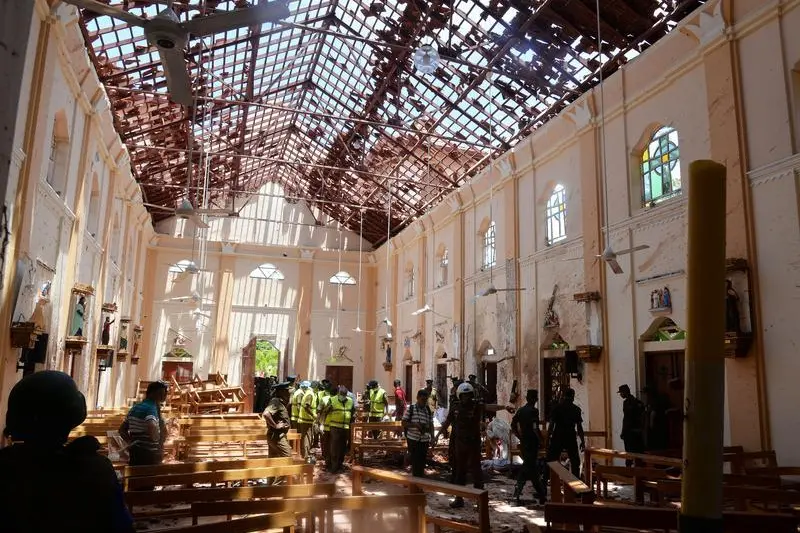PHOTO
COLOMBO - Sri Lanka's budget and current account deficits could widen because of the Easter Sunday bombings but the island's economy will recover in the medium-term and then have about 5% annual growth, the International Monetary Fund (IMF) said on Thursday.
The April 21 bombings, which Islamic State claimed responsibility for, killed more than 250 people in coordinated attacks on churches and luxury hotels.
Sri Lanka's economy, which depends on tourism, garment manufacturing, tea exports and remittances, was already at a low point before the bombings.
The economy grew 3.2% last year, the weakest in 17 years, as a weeks-long political crisis and monetary policy tightenings sapped business confidence and cooled investment.
With the attacks keeping many tourists away and further hurting business sentiment, growth could slide to just 2.5% this year, a Reuters poll of 10 analysts predicted.
The IMF, in a statement, said economic growth "has fallen below expectations... Although the recent terrorist attacks could slow down the economy in the near term, the growth momentum is expected to improve gradually over the medium-term to around 5%."
The attacks have had an impact on confidence and sentiment, which could lead to renewed challenges for the economy, it said.
"Although it is too early to assess the full impact of the Easter Sunday attacks, both fiscal and external current account deficits could be (wider)... than projected before the event."
Previously, the IMF said it expected that this year's fiscal deficit would fall to 4.5% of gross domestic product (GDP) from last year's 5.3%, and the current account deficit to 2.8% from 3.2% in 2018.
The lender did not provide fresh estimates, but said normalcy had largely returned to the island, thanks to government measures including the implementation of an emergency law.
"Authorities expect to get through this incident expeditiously, putting the country back on track to benefit from improving economic fundamentals," the IMF said.
In March, the Fund agreed to extend a $1.5 billion loan facility to Sri Lanka for an extra year, following the country's seven-week political crisis last year. urn:newsml:reuters.com:*:nL3N20O1XA
On Tuesday, the lender approved disbursal of a $164 million tranche, bringing the total disbursed to more than $1.16 billion.
The loan is crucial for Sri Lanka to secure more attractive borrowing terms.
(Reporting by Shihar Aneez Editing by Alexandra Ulmer and Richard borsuk) ((shihar.aneez@thomsonreuters.com; +94-11-232-5540; Reuters Messaging: shihar.aneez.thomsonreuters.com@reuters.net twitter:@shiharaneez))





















